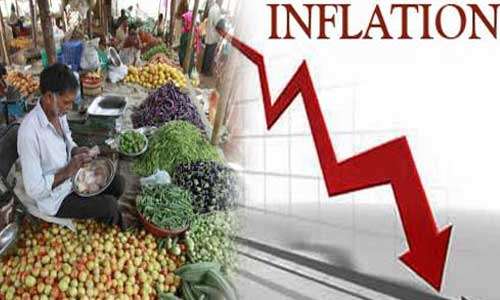Inflation rate is one of the most important economic variables in any country, especially in developing countries like Ghana. Developing countries are prone to high and persistent inflation rates. This rate is particularly important because it measures how prices of goods and services rise in an economy.
When the inflation rate rises too fast, the ability of households to afford basic needs such as food, clothing and shelter becomes difficult. The inflation rate is also crucial to the viability of businesses and investments in economies. When the inflation rate is high, the cost of borrowing rises, which in turn reduces the level of investment, ultimately slowing economic growth.
This is why countries with high inflation rates experience a high rate of poverty, depression, and eventually, social unrest, as we have seen in countries like Zimbabwe, Venezuela, and the likes. Impliedly, this rate is a proxy for how much a country’s leadership cares about the well-being of its citizens.
Since the inception of the government of His Excellency Nana Addo Dankwa Akufo-Addo and Dr Mahamudu Bawumia, careful attention has been given to the major known factors affecting inflation: (1) Monetary discipline, (2) Exchange Rate Stability and (3) Food Price Stability.
Various interventions were introduced to manage the factors of inflation, eventually bringing down the country’s high inflation rate from a peak of 15.4% at end of 2016 to a single-digit low of
7.7% in Oct 2019.
So what were these interventions?
Firstly, the government ensured that the ratio of Broad Money Supply to GDP remained relatively stable. The Broad Money supply to GDP ratio grew slightly by 3.17% between 2017 to 2019, ensuring Inflation fall from 15.4% to 7.7%, compared to the 21.42% increase in the Broad Money supply to GDP ratio between 2013 to 2016, which made inflation rise from 10.1% to 15.40% over the period. In other words, the current government has not encouraged reckless printing of money, which often leads to inflation.
Secondly, the substantial external reserve build-up by the Government in the last four (4) years helped maintain a relatively stable foreign exchange rate. Based on IMF data, the country’s Total External Reserves (including gold, current US$) rose sharply by 28.92% in three (3) years from year-end 2016 to Dec 2019. This helped in preventing incessant currency depreciation, which often leads to imported inflation in Ghana.
Thirdly, the government ensured food price stability through significant investments in the agricultural sector, improving food productivity. Food inflation reduced from 9.7% to 7.2% between Dec. 2016 and Dec. 2019, compared to the previous government, which allowed food inflation to rise sharply from 8% in Jan. 2013 to 9.7% as of Dec 2016.
Although the recent global pandemic has pushed the inflation rate from a single-digit to a double-digit of 10.33% as of Mar. 2021, it is worth noting that the ingenious current government budget titled “Economic Revitalisation through Completion, Consolidation & Continuity” is geared toward driving real sector productivity and price stabilization, to ensure inflation falls back to a single-digit in the post-pandemic era.
This Government is indeed Obaatanpa!!!
Latest Stories
-
Perez Musik celebrates marriage with breathtaking photos
4 mins -
I am not ready to sign any artiste to my record label – Kuami Eugene
31 mins -
Gov’t spokesperson on governance & security calls for probe into ballot paper errors
34 mins -
Free dialysis treatment to be available in 40 facilities from December 1 – NHIA CEO
48 mins -
NHIA will need GHC57 million annually to fund free dialysis treatment – NHIA CEO
54 mins -
MELPWU signs first-ever Collective Agreement with government
1 hour -
I’ve not been evicted from my home – Tema Central MP refutes ‘unfounded’ reports
1 hour -
After Free SHS, what next? – Alan quizzes and pledges review to empower graduates
2 hours -
Wontumi FM’s Oheneba Asiedu granted bail
2 hours -
Alan promises to amend the Constitution to limit presidential powers
2 hours -
Ghana to face liquidity pressures in 2025, 2026 despite restructuring most of its debt – Fitch
2 hours -
NPP’s record of delivering on promises is unmatched – Bawumia
2 hours -
Mahama: It’s time to dismiss the incompetent NPP government
2 hours -
‘It’s extremely embarrassing’ – Ernest Thompson on Ghana’s AFCON failure
3 hours -
Today’s front pages: Monday, November 25, 2024
3 hours

